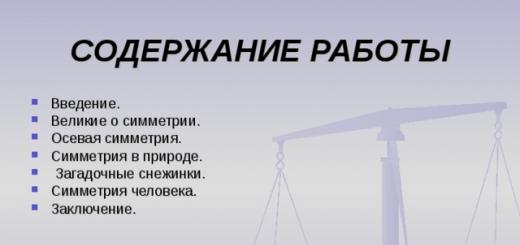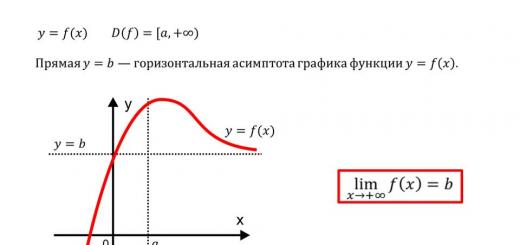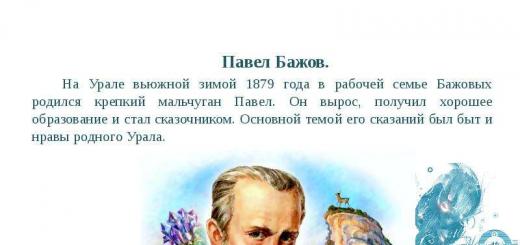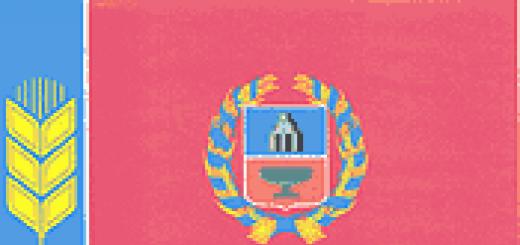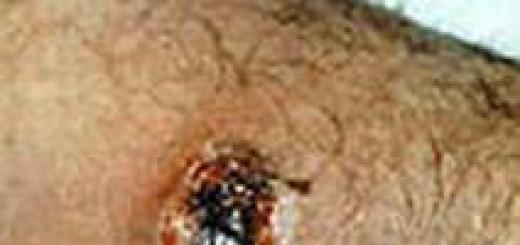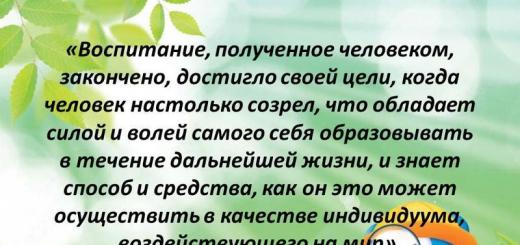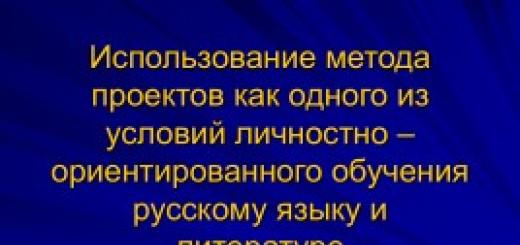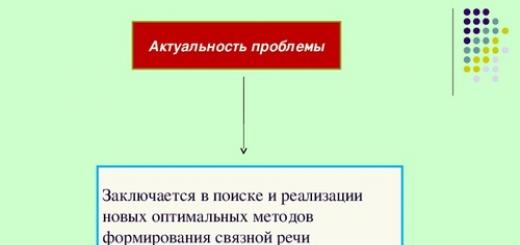China is one of the most visited countries in the world by tourists. It attracts mostly with its diversity of landscape, virgin villages with their own traditions and fascinating legends, and huge cities with vibrant nightlife. In China, everyone will find something new and unusual for themselves. China is one of the oldest civilizations; in this republic, architectural monuments that are tens of thousands of years old have been preserved to this day. Every attraction in China carries a secret and a centuries-old legend.
Traveling through the expanses of this extraordinary state, nothing will prevent you from enjoying its beauty, except perhaps ignorance of the Chinese language, but you can cope with this problem thanks to our Russian-Chinese phrasebook, which you can download or print directly from the site. It contains topics that you may need while traveling.
Appeals
Common phrases
| Phrase in Russian | Translation | Pronunciation |
|---|---|---|
| Yes | 是 | shi |
| No | 没有 | boo shi |
| Thank you! | 谢谢! | Sese! |
| Please! | 不客气! | Bukhatsi! |
| Sorry! | 对不起! | Duybutsi! |
| It's OK. | 没关系。 | Meiguanxi |
| I don't understand | 我不明白。 | Wo bu mingbai |
| Please repeat what you said | 请您再说一遍 | Tsing ning zai shuo and bien |
| Do you speak Russian? | 你会说俄语吗? | No fucking way, hey ma? |
| Does anyone here speak Russian? | 这里有人会说俄语吗? | Zheli yuuzhen huisho eyyu ma? |
| Do you speak English? | 你会说英语吗? | No fucking way? |
| Does anyone here speak English? | 这里有人会说英语吗? | Zheli yuzhen huisho yinyu ma? |
| What is your name? | 你叫什么名字 | ni yiao shen mi ming zi |
| How are you? | 你怎么 | neither here nor there |
| Fine | 玉 | yu |
| So-so | 马马虎虎 | may may hyu hyu |
| Bon Voyage! | 一路平安! | Yi lu phing an! |
At customs
| Phrase in Russian | Translation | Pronunciation |
|---|---|---|
| baggage | sinli | |
| currency | waihui | |
| import | daiju | |
| export | daichu | |
| declaration | baoguandan | |
| receipt | fapiao | |
| control (passport, customs) | chayanchu (bian jian, haiguan) | |
| medicine | yao | |
| drugs | mazuiping | |
| weapon | udzi | |
| passport | Huzhao | |
| duty | guanshui | |
| cigarettes | yang | |
| souvenirs | Jinyanping | |
| bag | bao | |
| suitcase | pussy | |
| Tell me, please, where is passport (customs) control? | Qing wen, huzhao (haiguan) chayanchu zai nali? | |
| I need a customs declaration form | Wo Xuyao and Zhang Baoguandan | |
| Please explain how to fill out a customs declaration | Qing Jieshi Yixia, Zenme Tian Baoguandan | |
| Help me fill out this form | Qing Banzhu Wo Tian Yixia Zhege Biaoge | |
| Where is your declaration? | Nide baoguandan? | |
| Here is my declaration | Zhe Jiu Shi Wode Baoguandan | |
| I do not have items that need to be included in the declaration | Wo meiyu xuyao baoguande uping | |
| Your passport? | Nide Huzhao? | |
| Here's my passport | Zhe shi wode huzhao | |
| These are my personal things | Zhe shi wode sirhen xinli | |
| I have foreign currency worth... | In yu waihui, shi shu... | |
| Where should I sign? | Zai naer qian zi? | |
| I want to call the Embassy (Consulate) | Wo xiang da dianhua gay dashiguan (lingshiguan) |
At the station
| Phrase in Russian | Translation | Pronunciation |
|---|---|---|
| How much does the ticket cost? | Phyao doshao tien? | |
| When does the train arrive/depart? | Hoche shemme shihou daoda? | |
| Porter! | Banyungong! | |
| Where is the taxi stand? | Chuzu zhezhan zai naer? | |
| I need one/two/three/four/five/six/seven/eight tickets. | 我要一张/两张/三张/四张/五张/六张/七张/八张票。 | Wo yao yi zhang/liang zhang/san zhang/si zhang/wu zhang/liu zhang/tsi zhang/ba zhang phiao. |
| Which track is our train arriving at? | Womende che ting zai di ji dao? | |
| Where is the exit…? | ...chukou zai naer? | |
| -in town | Qu Chengshi | |
| -on the platform | Shan | |
| Where is the storage room? | Zsunchu zai naer? | |
| Where is the ticket window? | Shoupiao chu zai naer? | |
| Where is platform no..? | ...hao yuetai zai naer? | |
| Where is carriage No..? | hao chesiang zai naer? | |
| One ticket to... please | Qing Mai and Zhang Qu…de Piao | |
| Railway carriage… | ...chexiang | |
| …soft | Ruan Wo | |
| …sleeping | In | |
| …hard | Ying zuo | |
| One way | Qu Wang Yige Fanxiang | |
| Roundtrip | Wangfan | |
| Is it possible...? | ...kei ma? | |
| ...hand over this ticket | Tui Yixia Zhe Zhang Piao | |
| ...change | Huan |
In transport
| Phrase in Russian | Translation | Pronunciation |
|---|---|---|
| Bus | 巴士 | kkazhi |
| Car | 汽车 | gojang |
| Taxi | 的士 | taxi |
| Parking | 停车 | posu tominol |
| Stop | 停止 | jongnyujang |
| Take me here (indicate the location written on the business card). | 请把我送到这里。 | Tsin ba wo sundao zheli. |
| Open the trunk. | 请打开行李舱吧。 | Tsin dakhai xinli tshan ba. |
| Turn left here | 这里往左拐。 | Zheli Wang Zuo Guai. |
| Here turn right. | 这里往右拐。 | Zheli wan you guai. |
| How much does it cost to travel by bus/metro? | 公车/地铁票多少钱? | Gunche/dithe pyao duoshao tsien? |
| Where is the nearest bus stop? | 附近的公交车站在哪儿? | Fujin de gongjiaochhezhan zai nar? |
| Where is the nearest subway station? | 附近的地铁站在哪儿? | Fujin de dithezhan zai nar? |
| What's the next stop (station)? | 下一站是什么站? | Xia yi zhan shi shenme zhan? |
| How many stops is it to (…)? | 到 (…) 有多少站? | Dao (...) duoshao zhan? |
| What bus goes to (...)? | 去 (…) 乘哪趟公交车? | Tsyu (...) cheng na tang gongjiaoche? |
| Which metro line goes to (...)? | 去 (…) 乘几号线地铁? | Tsu (...) cheng zihao xien dithe? |
| Please tell me how to get to (...)? | 请问,到 (…) 怎么走? | Tsingwen, dao (...) zenme zou? |
| Please take me to (...) | 请带我去 (…) | Tsing dao wo tsu (…)… airport. 飞机场。 fei ji chang. |
| ... railway station. | 火车站。 | huo che zhan. |
| …the nearest hotel | 最近的酒店。 | Zui jin de jiudien. |
| ...the nearest restaurant. | 最近的饭馆。 | Zui jin de fanguan. |
| ... the nearest beach. | 最近的海滨。 | Zui jin de haibin. |
| ... the nearest shopping center. | 最近的购物中心。 | Zui jin de gou wu zhong xin. |
| …the nearest supermarket | 最近的超级市场。 | Zui jin de chhao ji shi chang. |
| ... the nearest park. | 最近的公园。 | Zui jin de gong yuan. |
| ...the nearest pharmacy. | 最近的药店。 | Zui jin de yaodien. |
At the hotel
| Phrase in Russian | Translation | Pronunciation |
|---|---|---|
| I need to order a room | 我需要储备 | wo hyu yao chu bei |
| I want to order a room | 我想储备 | in hyang chu bey |
| What is the price? | 要多少钱 | duo shao chien? |
| Room with bath | 带浴室的房间 | give yu cabbage soup di fang jian |
| We booked a room for two, here are our passports. | 我们预定了双人房间。 这是我们的护照。 | Women yudinle shuangren fanjien. Zhe shi women de huzhao. |
| Do you have rooms available? | 有没有空的房间? | You meiyou khun de fanjien? |
| Is there a cheaper room? | 有没有便宜点儿的房间? | You meiyou pienyidiar de fanjien? |
| I need a single room. | 我需要单间。 | Wo xuyao danjien. |
| I need a double room. | 我需要双人间。 | Wo xuyao shuangzhenjien. |
| I need a double room with sea view. | 我需要一个海景的双人房间。 | Wo xuyao ige haijing de shuangren fanjien. |
| Does the room have a telephone/TV/refrigerator/air conditioning? | 房间里有电话/电视/冰箱/空调吗? | Fangjien li you dienhua/dienshi/binxiang/khuntxiao ma? |
| What floor is the room on? | 我的房间在几楼? | Wo de fanjien zai ji lo? |
| Is breakfast included? | 价格包括早餐吗? | Jiage baokhuo zaotshan ma? |
| What time breakfast? | 早餐几点开始? | Zaotshan ji dien khaishi? |
| My room is not cleaned. | 我的房间没有打扫。 | Wo de fanjien meiyou dasao. |
| I want to change my number. | 我想换个房间。 | Wo xiang huangge fanjien. |
| We ran out of toilet paper in our room. | 我们房间没有手纸了。 | Women fanjien meiyou shouzhi le. |
| Tips | 秘诀 | mi jue |
| Room | 室 | cabbage soup |
| We're leaving today. | 我们今天走。 | Women jinthien zou. |
| We are leaving on August 5th. | 我们八月五号走。 | Women ba yue wu hao zou. |
| We want to rent out the room. | 我们想退房。 | Women xiang thui fan. |
| The minibar was already empty before I even checked into this room. | 我进房间的时候迷你吧就是空的。 | Wo jiu fanjien de shihou miniba jiu shi khun de. |
Emergencies
| Phrase in Russian | Translation | Pronunciation |
|---|---|---|
| Fire Department | 消防队 | hiao fang dui |
| Police | 警察 | ying cha |
| Fire | 火灾 | Huo Zai |
| Fight | 扭打 | oh yeah |
| Ambulance | 救护车 | yuy hu che |
| Hospital | 医院 | Yui Yuan |
| I have… | 我已经… | in yui ying |
| Stretching | 实力 | shi li |
| Pharmacy | 药房 | Yao Fang |
| Doctor | 医生 | yi sheng |
| I got sick) | In Bingle | |
| I feel bad | Wo ganjue zici buhao | |
| Please call... | Qing Jiao Yixia... | |
| ...doctor | Yisheng | |
| ...ambulance | jijiu | |
| I have… | In… | |
| …cough | ...kasou | |
| …runny nose | ...shangfeng | |
| …stomach upset | ...fuse |
Dates and times
| Phrase in Russian | Translation | Pronunciation |
|---|---|---|
| Monday | Xingqi and | |
| Tuesday | xingqi er | |
| Wednesday | sinqi say | |
| Thursday | xingqi sy | |
| Friday | Xingqi Wu | |
| Saturday | xingqi liu | |
| Sunday | xingqi tian | |
| Today | Jintian | |
| Yesterday | Zuotian | |
| Tomorrow | Mingtian | |
| Day before yesterday | Qiantian | |
| Day after tomorrow | Houtian | |
| in the morning | zai zaoshan | |
| during the day | zai bai tian | |
| In the evening | zai wanshan | |
| every day | meitian | |
| winter | dongtian | |
| spring | chuntian | |
| summer | xiatian | |
| autumn | Qiutian | |
| in winter | zai dongtian | |
| in the spring | Tsai Chuntian | |
| in summer | Tsai Xiantian | |
| in autumn | Tsai Qiutian | |
| January | and Yue | |
| February | er yue | |
| March | San Yue | |
| April | si yue | |
| May | wu yue | |
| June | Liu Yue | |
| July | qi yue | |
| August | ba yue | |
| September | Jiu Yue | |
| October | shi yue | |
| november | Shii Yue | |
| December | shier yue | |
| What time is it now? | Ji dian zhong? | |
| Now… | Xianzai shi... | |
| …noon | Shi'er Dian | |
| …midnight | Ling Dian | |
| Now… | Xianzai shi... | |
| 1 hour 5 min. (morning) | and dian wu fen (zaoshan) | |
| 5 hours 43 min. (evenings) | wu dian syshi san fen (wanshan) |
Numerals
| Phrase in Russian | Translation | Pronunciation |
|---|---|---|
| 1 | 一 | And |
| 2 | 二 | [èr] er |
| 3 | 三 | san |
| 4 | 四 | sy |
| 5 | 五 | at |
| 6 | 六 | Liu |
| 7 | 七 | tsi |
| 8 | 八 | ba |
| 9 | 九 | jiu |
| 10 | 十 | shi |
| 11 | 一十一 | yī shí yī] and shi and |
| 12 | 一十二 | and shi er |
| 20 | 二十 | [èr shí] er shi |
| 30 | 三十 | san shi |
| 40 | 四十 | sy shi |
| 50 | 五十 | ears |
| 51 | 五十一 | wu shi and |
| 52 | 五十二 | w shi er |
| 53 | 五十三 | wu shi san |
| 100 | 一百 | and bye |
| 101 | 一百零一 | and bai ling and |
| 110 | 一百一十 | and bai and shi |
| 115 | 一百一十五 | and bai and shi wu |
| 200 | 二百 | [èr bǎi] er bai |
| 1 000 | 一千 | and tsien |
| 10 000 | 一万 | and Van |
| 1 000 000 | 一百万 | and Bai Wan |
In the shop
| Phrase in Russian | Translation | Pronunciation |
|---|---|---|
| What is the price | 要多少钱 | yao duo shao quan |
| Cash | 现金 | hbyan jiya |
| Cashless | 对于非现金 | Dew dick fairies hyan ji |
| By check | 检查 | hyan ji |
| What payment method | 什么付款方式 | shen mi fu qiang fang shi |
| Cigarettes | 香烟 | hyang yang |
| Bread | 面包 | mian bao |
| Products | 产品 | Chan Ping |
| To wrap up | 包 | bao |
| No change | 无日期 | woo ri kwi |
| Tips | 秘诀 | mujie |
| Water | 水 | shewy |
| Fresh squeezed juice | 新鲜果汁挤压 | hin hyan guo cabbage soup yi ya |
| Sugar/salt | 糖/盐 | tang/yang |
| Milk | 牛奶 | newey nai |
| Fish | 鱼 | yuy |
| Meat | 肉类 | swarm of lei |
| Chicken | 鸡 | yay |
| Mutton | 羊肉 | young roy |
| Beef | 牛肉 | new swarm |
| Pepper/seasonings | 辣椒 / 香料 | ia iao/hyang liao |
| Potato | 土豆 | that's it |
| Rice | 大米 | yes myi |
| Lentils | 扁豆 | bian doy |
| Onion | 洋葱 | yang kong |
| Garlic | 大蒜 | yes xuan |
| Sweets | 甜点 | tian dian |
| Fruits | 水果 | Shui Guo |
| Apples | 苹果 | ping guo |
| Grape | 葡萄 | pu tao |
| Strawberry | 草莓 | khao mei |
| Oranges | 桔子 | ju zi |
| Mandarin | 柠檬 | pu tong hua |
| Lemon | 石榴石 | ning meng |
| Pomegranate | 香蕉 | I pour cabbage soup |
| Bananas | 桃 | xiang zhdiao |
| Peaches | 杏 | tao |
| Apricot | 芒果 | skinning |
| Mango | 开放 | mang guo |
| Open | 关闭 | kai |
| Closed | 折扣 | kuan |
| Discount | 关闭 | later |
| Very expensive | 非常昂贵 | tai gui le |
| Cheap | 便宜 | drunk yi |
| Where can I buy baby products? | 哪里能买到儿童产品? | Nali nen maidao erthong chhanphin? |
| Where can I buy shoes? | 哪里能买到鞋子? | Nali nen maidao sezi? |
| Where can you buy women's clothing? | 哪里能买到女的衣服? | Nali nen maidao nyu de ifu? |
| Where can you buy men's clothing? | 哪里能买到男的衣服? | Nali nen maidao nan de yifu? |
| Where can you buy cosmetics? | 哪里能买到美容? | Nali nen maidao meizhong? |
| Where can you buy household goods? | 哪里能买到日用品? | Nali nen maidao zhiyongphin? |
| On which floor is the grocery supermarket? | 超级市场在哪一层? | Zhaoji shichang zai na yi zhen? |
| Where's the exit here? | 出口在哪儿? | Chhukhou zainar? |
| Can I try it? | 我把这个试一下,好吗? | Wo ba jege shi isia, hao ma? |
| Where is the fitting room? | 试衣间在哪里? | Shi and jien tsai nali? |
| I need a larger size. | 我需要大一点儿. | In xuyao ta idiar. |
| I need a smaller size. | 我需要小一点儿. | Wo xuyao xiao idiar. |
| I need 1 size larger. | 我要大一号. | Wo yao ta ihao. |
| I need 1 size smaller. | 我要小一号. | Wo yao xiao yihao. |
| Can I pay by card? | 可以刷卡吗? | Khei shua kha ma? |
| What is the price? | 多少钱? | Tuo shao tsien? |
| Very expensive! Let's go a little cheaper. | 太贵了! 来便宜点儿。 | Thai gui le! Lai phienyi diar. |
| We are poor students, we can’t afford it. | 我们是穷学生, 这个我们买不起。 | Women shi qiong xueshen, zhege women mai butsi. |
| Is this price for 1 jin? (1 jin = 0.5 kg, in China the price is usually indicated for 1 jin) | 这是一斤的价格吗? | Zhe shi and jin de jiage ma? |
| Where can you buy fruit? | 哪里能买到水果? | Nali nen maidao shuiguo? |
| Where can you buy vegetables? | 哪里能买到蔬菜? | Nali nen maidao shutzhai? |
| Where can you buy meat? | 哪里能买到肉类? | Nali nen maidao zhoulei? |
| Where can you buy alcoholic beverages? | 哪里能买到酒类? | Nali nen maidao jiulei? |
| Where can you buy dairy products? | 哪里能买到奶制品? | Nali nen maidao naizhiphin? |
| Where can you buy confectionery? | 哪里能买到糖果点心? | Nali neng maidao tangguo dienxin? |
| Where can you buy tea? | 哪里能买到茶叶? | Nali nen maidao chhae? |
| Need 1 large package. | 我要大的袋子。 | Wo yao tade daizi. |
| Need one small package. | 我要小的袋子。 | Wo yao xiaode daizi. |
| I'll pay with a card. | 我刷卡。 | Wo shua kha. |
In a restaurant and cafe
| Phrase in Russian | Translation | Pronunciation |
|---|---|---|
| Waiter | 服务员 | woo woo one |
| Do you have any tables available | 你有自由表 | ni woy zi woy biao |
| I want to book a table | 我想预订一张桌子 | wo hyang ding ui zang zuo zi |
| Check please (bill) | 请检查(帐户) | qing yian cha |
| Accept my order | 请接受我的命令 | qing yie shou wo de ming ling |
| What year is the wine | 今年葡萄酒 | yin nian puo tao yi |
| Your signature dish | 您的特色菜 | nin di te se kai |
| Tea coffee | 茶/咖啡 | cha/ka fairies |
| Instant coffee | 速溶咖啡 | su rong ka fairies |
| Soup | 汤 | tang |
| Olives | 橄榄树 | gan lan shu |
| Salad | 沙拉 | sha la |
| Grilled | 烤 | kao |
| Fried | 烤 | kao |
| Boiled | 煮 | zhu |
| I do not eat meat! | 我不吃肉! | wo bu yi roi |
| Vermicelli | 挂面 | gia mian |
| Pasta | 面食 | mian si |
| Stuffed pepper | 酿三宝 | niang san bao |
| Sandwich | 三明治 | san ming zhi |
| Cheese / sour cream (sour) | 奶酪/酸奶(酸奶) | nai lao / suan nai |
| Beer | 啤酒 | Phi Chiu |
| Wine | 葡萄酒 | pu tao yiy |
| Please bring the menu. | 请给我菜谱。 | Tsin gey vo tskhaiphu. |
| I want to order this... this... and this. (showing in menu) | 我要这个… 这个…和这个…。 | Wo yao jege... jege... he jege. |
| Is it spicy? | 这个辣不辣? | Jege la bu la? |
| Please bring spoons/forks/napkins/sticks/plates | 请,给我匙子/叉子/餐巾/筷子/盘子。 | Tsin, gey wo chshi tzu/chha tzu/tshan jin/khuai tzu/phan tzu. |
| Bring the bill, please. | 买单。 | May tribute. |
| Delicious! | 很好吃! | Hen hao chshi! |
| Squid | 鱿鱼 | yo yu |
| Shrimp | 虾 | Xia |
| Fish | 鱼 | yu |
| Pork | 猪肉 | Zhu Zhou |
| Beef | 牛肉 | niu zhou |
| Mutton | 羊肉 | Yan Zhou |
| Chicken | 鸡 | ji |
| Duck | 鸭 | I |
| Tofu | 豆腐 | dofu |
| Eggplant | 茄子 | Tse Tzu |
| Potato | 土豆 | thu dou |
| Noodles | 面 | Myen |
| Egg | 鸡蛋 | ji dan |
| Orange juice | 橙汁 | cheng zhi |
| Apple juice | 苹果汁 | Phing Guo Zhi |
| Tomato juice | 蕃茄汁 | Fan Tse Zhi |
| Grape juice | 葡萄汁 | phu thao zhi |
| Peach juice | 桃汁 | thao zhi |
| Coffee | 咖啡 | Kha Faye |
| Black tea | 红茶 | hun cha |
| Green tea | 绿茶 | Liu Cha |
| Eggplants with peppers and potatoes | 地三鲜 | Disanxian. |
| Meat in sweet and sour sauce | 锅包肉 | Guobaozhou. |
| Fried squid with cumin | 孜然鱿鱼 | Zizhan youyuy. |
| Dumplings | 饺子 | Jiaozi. |
| Dumplings with meat filling | 肉馅的饺子 | Zhou xien de jiaozi. |
| Steamed pies with filling | 包子 | Baozi. |
| Peking duck | 北京烤鸭 | Bei jing kao ya. |
| Fried strips of pork in spicy sauce | 鱼香肉丝 | Yu Xiang Rou Si. |
| Chicken with crispy peanuts | 碎米鸡丁 | Sui mi ji ding. |
| Spicy tofu | 麻辣豆腐 | Ma la doufu. |
General phrases are words that can be used to start a conversation and maintain it in the future. Here are the phrases that are most often used in the lexicon.
Airport – in order not to get confused at the Chinese airport, find ticket offices, access to terminals, parking, bus stops, etc., this theme is perfect for you.
Transport – by opening this topic you will find translations of words and phrases that can be used to explain to a taxi driver where you need to go, or to find out which bus route is right for you, to clarify the price of travel, to find out how to get to the station. metro, bus stop, etc.
A restaurant is a place that every tourist visits. However, the Chinese language is very different from Russian, as is the cuisine. Therefore, without knowing the translation of certain dishes, as well as their components, you will not be able to order what you want. To solve this problem, just open this topic and find the name of the dish that you like.
Hotel – when checking into a hotel you need to fill out some paperwork, choose a room that suits your taste, etc. In order to explain what you want from a hotel and to clarify the nuances of your stay, just open this section and find the appropriate phrases.
Mall - a list of common phrases that you will undoubtedly need while shopping at the mall.
Grocery supermarket - a list of words and phrases that will help you purchase the products you are interested in.
Pharmacy - if you have health problems, but everything in the pharmacy is written in Chinese, and the pharmacist himself does not understand what you need, use this topic and you will buy the medicine that you need.
Cashier - words and phrases that will help you in conversation with the cashier.
Chinese counting - translation and sound of numbers in Chinese, from zero to million.
Pronouns - pronunciation and translation of pronouns in Chinese.
Question words – frequently asked and important questions for tourists, their pronunciation and spelling.
Name of colors - here you will find translations of many colors and shades, as well as their correct pronunciation.
We believe that all Chinese are Buddhists, which is not true. Tourists love to look at the magnificent Chinese pagodas, and this is probably where this association came from. Buddhism is indeed widespread in China, but Chinese philosophical and religious thought does not live by Buddhism alone.
Traditional Chinese ideology rests on the “three pillars” of Buddhism, Confucianism and Taoism.
Most Chinese are atheists. This is what official statistics say, and our observations fully confirm this idea.
The era of communism bore its fruits, and most of the population stopped believing in anything. But the way of thinking, ethics and norms of behavior of modern Chinese are formed by these three teachings. By the way, none of them can be recognized as a religion in the usual sense of the word.
Freedom in China
This country is considered one of the most unfree in the world. This happened in Chinese history, but now everything is changing. The modern Chinese does not feel any serious control, although in fact it exists.
On the other hand, there is much more freedom to realize oneself in China than in Russia. It’s much easier to open your own business there, it’s much easier to do your own thing on your own, rather than “working for someone else.” If you would like to work, the state will not interfere with you too much.
In China you cannot criticize the government on the internet. subject to strict censorship. But the authorities listen to what is happening and draw conclusions. Events took place, the Communist Party drew conclusions, and reforms began.
Taiwan, Macau and Hong Kong
Hong Kong is a former colony of the British Empire. Recently, it has officially become a province of the People's Republic of China. In essence, it is a separate state. The authorities in Beijing are responsible only for foreign policy, and all other administrative issues are decided by local authorities.

It has its own currency, its own laws, its own visa regime and tax law. Russian citizens can visit Hong Kong without a visa, and can only enter the main territory of the country with a passport.
The tax system in Hong Kong is completely different - there is no VAT, and many things are 15-20% cheaper. If you want to buy an iPhone or iPad cheaply, then go to Hong Kong. Many Chinese come here to buy smartphones, tablet computers and laptops.
The city of Macau is similarly part of the PRC, and also has almost complete independence. It is a former colony of Portugal. It has its own laws, money and taxation.
Macau is a casino city; it is the Las Vegas of Asia. If a Chinese wants to play poker, blackjack or roulette, then they come here.

The situation on the island of Taiwan is more complicated. China officially considers it its territory and a province of the People's Republic of China. The Taiwanese disagree, and much of the world accepts their point of view.
Taiwan is a separate country. Everything is here, including the army and navy. This state is called the Republic of China (ROC), which translates as “Republic of China”. There are no negotiations on Taiwan's accession to the PRC.
Important advice for tourists. At Chinese airports, flights to Macau, Hong Kong and Taiwan are referred to as “domestic” flights, and flights to these regions board from domestic flight terminals. Don't get confused.
We wish you a successful visit to China, and read our pages about this country ( links below).
The vocabulary we have allows us to parse the following example about apples:
这个苹果好吃,那个不好吃。
Zhège píngguǒ hào chī, nàgè bù hào chī.
This apple is tasty, but this apple is not tasty.
After purchasing apples, you will naturally want to return home, but how can you say this? That's right, using the one already familiar to us Chinese verb– 回家 huí jiā.
This word consists of two hieroglyphs, one of which is 回 huí, we discussed a little higher in this lesson, and the second 家 jiā was used in However, here this hieroglyph means “house, home”, and the whole phrase means “to return home” . I hasten to point out that these two hieroglyphs are always used together to express the meaning of returning home. You cannot say 去家 qù jiā to mean that you are going to your home, although if you are going to a friend's house, you can say 我去我朋友的家。 Wǒ qù wǒ péngyǒu de jiā. So, as we have already learned, you can return home by taxi, train, etc., but you can also drive a car, and it goes like this:
我开车回家。 Wǒ kāichē huí jiā. – I’m going home by car (driving).
他会开车。 Tā huì kāichē. - He knows how to drive a car.
开车 kāichē literally means to open the car, i.e. The character 开 kāi is to open, which is used with other words that literally mean “to open,” as in “What time does the store open?”
几点开门? jǐ diǎn kāimén? – What time does it open?
商店几点开门? Shāngdiàn jǐ diǎn kāimén? - What time does the store open?
Where 门 men are doors, i.e. 开门 kāimén - to open doors.
New words:
商店shāngdiàn – store
回来huílái – return (here)
回去huíqù – return (there)
多少duōshǎo - how much?
东西dōngxī – things
买东西mǎi dōngxī – to buy something
水果shuǐguǒ – fruits
苹果píngguǒ – apple
开kāi – to open
开车kāichē – to drive a car
开门kāimén – open doors, start working
回家huí jiā – to return home
In this lesson we covered several Chinese verbs, and in the next lesson we will have the topic of cinema. What kind of films do you like? Have you ever watched Chinese films? To be honest, I don't like Chinese films, there are too many tears, whining, breakups and the like, I don't have the patience to watch them. I began to become interested in China when I watched Jackie Chan’s films, not even suspecting that he was from Hong Kong, which is truly a different country. Unfortunately, in Jackie Chan's films, all the actors speak Cantonese or, in modern films, English. Therefore, they are not very effective for learning Chinese. I advise you to study Chinese songs, translate words and sing - this helps with speaking.
And in the next lesson we will also have a dialogue on the phone, an analysis of all electronic household appliances; we will learn how to say goodbye in Chinese, how to set an alarm clock, get enough sleep and not oversleep for work the next day. This and much more will be on the site, so stay up to date, join the Your China in contact group! Looking forward to seeing you in the next lesson!
Exercise 1
Write down the characters using Pinyin.
- shāngdiàn
- shuǐguǒ
- duōshǎo
- yīkuài qián
- duōshǎo qián
- mǎi dongxī
- mǎi yīfú
- mǎi bú mǎi
- fēijī
- jǐ diǎn
- jiào shenme míngzì
- yīshēng
- xuesheng
- shíhòu
- shuōhuà
- zài zhuōzi shàng
Exercise 2
Listen and write down what you hear in hieroglyphs, indicating the tone of each word.
Exercise 3
Translate into Chinese.
- What time does your store open? – Our store opens at 8.00 am.
And now we meet again!
Today we will study with you several phrases that you cannot do without if you decide to learn Chinese. They will definitely come in handy on your first trip to China, so they should be in your vocabulary.
So get ready, we're about to begin!
谢谢 - thank you
Imagine that you are lost, wandering the streets of China. How do you know how to get to the right place? You can ask young people, who will probably use the 百度 card, or you can also ask the older generation, who, as a rule, are better oriented than young people. And so, they told you the way. How can you thank the person who helped you? It's simple. Just tell him “谢谢”.
This is a more versatile option. Very often, being in a Chinese environment, you can come across slightly different words of gratitude:
很感谢你! is a more formal thank you.
对不起 - sorry
You are on a bus crowded with people (believe me, this happens very often in China). And you completely accidentally (or maybe not J) stepped on the foot of a standing person. The Chinese usually rarely get indignant or start swearing over such trifles, but you can hardly avoid a sidelong glance. And it is precisely in such moments, when you are to blame, that you can apologize by saying: 对不起
抱歉 – I apologize
不好意思 - sorry
多少钱 – how much does it cost?
The most necessary phrase if you decide to make a purchase. Well, here I think everything is clear. The only thing that can be added is that if you don’t know how to say this or that thing in Chinese, you can either just point your finger and say “多少钱?”, or say 这个多少钱 - How much does it cost?
Here are some examples of what you might ask:
这支笔多少钱? – How much does this pen cost?
门票多少钱? – How much is the entrance ticket?
这本书多少钱? – How much does this book cost?
…怎么走?- how to get to….?
You will need it if you don’t know how to get to the right place. Just before the words 怎么走 insert the name of the place you need, as done below:
地铁站怎么走? – How to get to the metro station?
警察局怎么走?[ jǐngchá jú zěnme zǒu] – How to get to the police station?
公交车站怎么走? – How to get to the bus stop?
你慢点说 – speak more slowly
If you can't understand what a Chinese person is saying because he speaks too quickly, you can ask him to speak more slowly.
你会说英语吗? - Can you speak English?
Are you in China and your Chinese is zero? No problem. Perhaps your English is at a fairly good level. In this case, you can ask your interlocutor if he speaks English. And if the answer is positive, then you can continue the conversation in English.
我迷路了 - I'm lost
After this phrase, you can insert phrase number 4 to finally find the right path.
请问 - let me ask, excuse me (you can ask)
In order not to seem like an ill-mannered laowai who came to the Celestial Empire, we add this phrase before the question. And here are some examples:
请问,警察局怎么走? – May I ask how to get to the police station?
请问,门票多少钱? – May I ask, how much is the entrance ticket?
请问,公交车站怎么走? – May I ask, how to get to the bus stop?
That's all for today. You can also watch a video on this topic, where our teacher, a native Chinese speaker, will explain everything clearly to you, and you can listen to the correct pronunciation. By the way, don't forget to turn on subtitles. Enjoy watching!
Are you planning a trip to China and don't know Chinese?
We have prepared a short selection of useful phrases that will help when communicating with the Chinese.
1. What is it?这是什么? Zhè shì shénme?
What is there?那是什么 ? Nà shì shénme?
Don't know what to name an item in Chinese? Point it out!
这是什么? (Zhè shì shénme?) means that the thing you are interested in is nearby or a couple of steps away.
And the question 那是什么? (Nà shì shénme?) is used to clarify about something located at a distance.
Advice:
When you hear an unfamiliar word, repeat it adding the phrase “是什么?” shì shénme? You will get “What does _____ mean?” This will help you clarify the unclear word and better understand what you were just told.
2. How much does it cost?多少 钱 ? Duō shǎo qián?
The Chinese will always try to sell you a product for more than it is worth. Get used to it, you're a foreigner!
Advice:
remember this phrase together with 太贵了! (Tài guìle!) Too expensive! And don't be shy to bargain!
Phrase 太贵了! (Tài guìle!) plus your acting skills will help you reduce the price significantly.
3. Where is it located?(something)? ___在哪里 ? ___ zài nǎlǐ?
This phrase will help you find everything you want! Need a taxi? Restaurant? Pencil? Telephone? Toilet?
Substitute any noun and ask a question.
For example, 厕所在哪里? (Cèsuǒ zài nǎlǐ?) I am looking for the restroom. We also recommend learning this phrase by heart. Believe me, one day she will save you.
Advice. When planning a trip to China, do a little prep work. Look up the names of the places you plan to visit and write down their names in Chinese. This will come in handy if you have to ask locals for directions.
4. I don't speak Chinese very well. 我的汉语不太好。 Wǒ de Hànyǔ bù tài hǎo.
5. I don't understand.我不懂. Wǒ bù dǒng.
Asking a question is half the battle. It is also important in Chinese. Therefore, if in a conversation with you the Chinese began to endlessly tell different stories, and you do not understand them, stop them with these phrases. Or ask them to repeat the same thing, just slowly.
6. Can you repeat it again more slowly? 你能再说慢一点吗? Nǐ néng zàishuō màn yīdiǎn ma?
You need to learn this phrase, it will come in handy more than once! The Chinese may not always understand that you have difficulty understanding rapid speech. So don't be shy and ask your interlocutors to repeat it slowly again. This will help you begin to understand much more.
7. You speakBy-RusskAnd(in English)? 你会 说 俄语 (英语 ) 吗 ? Nǐ huì shuō éyǔ (yīngyǔ) ma?
If the conversation in Chinese is not going well, try switching to a language that is more understandable to you.
8. Can you help me?你可以帮我 吗 ? Nǐ kěyǐ bāng wǒ ma?
We all face situations where we need help. It is extremely unpleasant to get confused while abroad. This is where this phrase comes in handy.
9. PosHello the police! 叫警察 ! Jiào jǐngchá!
Rest is relaxation, but caution doesn’t hurt. Always be careful! We really hope that you will never need this phrase, but you need to learn it.
10. Thank you! 谢谢 ! Xièxiè!
你好吗? ( Nǐ hǎo ma? How are you?), 再见 ( Zaijiàn Goodbye), 对不起 ( Duìbùqǐ Sorry).
一路顺风 ! Yī lù shùnfēng! Fair wind!
Happy practice!
Svetlana Khludneva
P.S. Take care of yourself!



